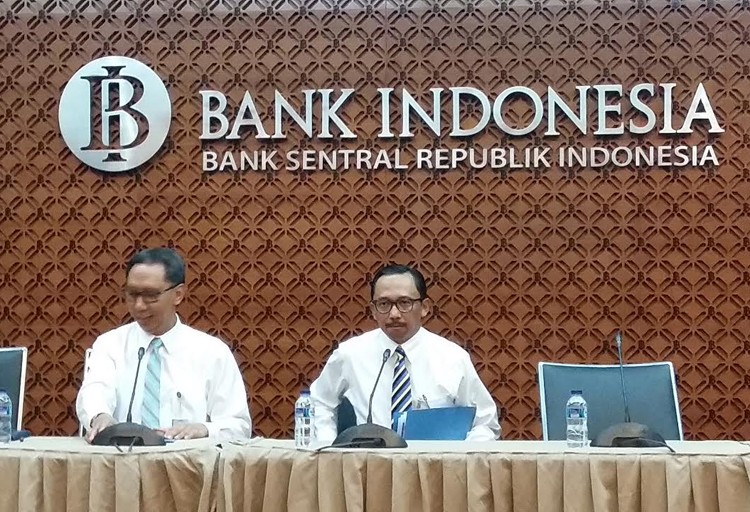Popular Reads
Top Results
Can't find what you're looking for?
View all search resultsPopular Reads
Top Results
Can't find what you're looking for?
View all search resultsBank Indonesia continues its monetary easing stance
Change text size
Gift Premium Articles
to Anyone
I
n line with expectations, Bank Indonesia (BI) has continued with its monetary easing by keeping its benchmark sevenday repo rate at 4.75 percent on Thursday to maintain stability amid growing global uncertainty.
The move anticipated a change in direction of United States economic policies brought about by president-elect Donald Trump, who will assume his new duties on Friday.
BI spokesman Tirta Segara said that since the new US president would likely adopt aggressive economic policies, particularly to speed up the US’ economic recovery, the Federal Reserve might increase its fund rate several times this year. This could negatively affect the cost of borrowing, as well as the stability of the rupiah.
Internally, the move also aims at tackling rising inflation, triggered by some recent measures, such as a cut in electricity subsidies and higher administration fees for vehicle ownership documents, said BI economic and monetary policy director Juda Agung.
In the first two weeks of January, the year-to-date inflation rate was 0.69 percent.
“The price of electricity will be increased twice, in March and May, while gas subsidies will be cut as well,” Juda said, in reference to additional factors that would push up inflation.
According to the central bank’s estimate, the cost of energy could raise inflation by 90 basis points ( bps) throughout 2017.
Indonesia’s inflation may reach 4 percent this year, according to a consensus among analysts.
Last year, BI lowered its key interest rate six times, 150 bps overall, as it expected that the softer lending rate would stimulate corporate demand for bank loans and spur economic activities in the country.
Southeast Asia’s largest economy expanded by slightly more than 5 percent last year, after falling to its slowest pace in 2015. This year, the government expects it can grow by 5.1 percent.
In terms of the trade balance, Indonesia has positioned itself better compared to in past years, posting a surplus of US$8.78 billion last year, up from $7.61 billion in 2015.
Economists have said that the external trade outlook may improve this year on the back of recovering commodity prices, such as for palm oil, coal and copper.
BI also claimed that the banking sector was also healthier as non-performing loans declined to 2.98 percent last December.
OCBC Bank economist Wellian Wiranto said that, considering the external as well as internal factors, the central bank would most likely keep its interest rates stable throughout this year.
“The economy does not really need a further monetary boost at this point and, in fact, doing so when the global situation remains unsettled — and potentially more and more prone to reversals — may well be counterproductive,” he wrote in a research note.
Meanwhile, UOB global economic and market researcher Ho Woei Chen expected BI to maintain a low interest rate until the first half of this year, but said the central bank may increase interest rates in the second half if inflation goes up. Externally, she added, a potential Fed rate increase might make an impact on the rupiah, but Indonesia’s sustained trade surplus, as well as cash inflows into government bonds, could compensate for a stronger dollar.
Bahana Securities economist Fahkrul Fulvian predicted the BI’s easing mode would only end in 2018 as domestic consumers regained purchasing power during 2017, which would be a trigger for higher inflation.
“The purchasing power will mainly be supported by a commodity price increase, as well as by the spillover effect from infrastructure development projects, which will give a boost of income,” he told The Jakarta Post.
A combination of potentially higher inflation in 2017 and higher commodity prices would lower the probability of the rupiah depreciating in response to the Fed’s effect, Fakhrul said.










